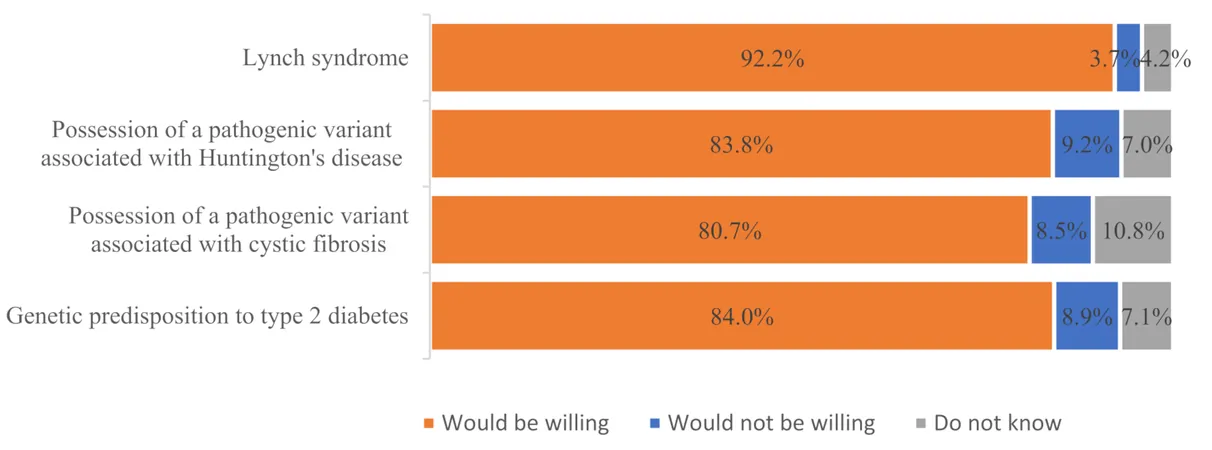
Unlocking the Secrets of Genetic Testing: The Hot Debate on Returning Findings to Lithuanian Biobank Participants!
2025-07-04
Author: Ming
Are You Ready to Learn About Your Genes? The Lithuanian Biobank Debate!
A groundbreaking study in Lithuania is shedding light on the contentious issue of whether individual genetic findings should be returned to biobank participants. Conducted in 2021, this mixed-methods study combines expert interviews with a significant survey of the Lithuanian public, sparking a hot debate among scientists, ethicists, and everyday citizens.
Who Were The Experts?
The research tapped into the wisdom of 17 distinguished experts from diverse fields, including geneticists, ethicists, and healthcare professionals. These expert interviews explored their views on the return of important genetic information—particularly in the context of four crucial hypothetical scenarios.
The Scenarios that Sparked Controversy
Experts discussed scenarios involving: 1. Lynch syndrome—linking genetic risk to cancer. 2. A pathogenic variant related to Huntington's disease—a neurodegenerative condition. 3. A variant associated with cystic fibrosis—a serious respiratory disorder. 4. Increased genetic risk for type 2 diabetes—a common yet manageable condition.
What Did the Experts Say?
As it turns out, opinions among experts were varied. For Lynch syndrome, there was a consensus on the importance of returning this finding, as it opens the door for preventive measures that could save lives. One expert emphasized, "Knowing your cancer risk can allow for effective preventive strategies and early detection." In stark contrast, discussions about Huntington's disease were fraught with concern. The potential for distress or even suicidal thoughts loomed large. Some experts strongly opposed sharing this information, fearing it would lead to unnecessary emotional turmoil.
Can Cystic Fibrosis Be Handled?
The debate continued with cystic fibrosis, where experts were split. Some argued that revealing such information should be conditioned on a partner carrying the gene. Others believed it could empower reproductive choices, leading to a safer environment for potential children.
Type 2 Diabetes: To Inform or Not to Inform?
Finally, the issue of communicating a genetic risk for type 2 diabetes divided opinions. Many experts believed that a modest risk shouldn’t warrant concern, dubbing it akin to fortune-telling. However, others viewed this genetic insight as an opportunity for lifestyle change, particularly for younger generations keen on health.



 Brasil (PT)
Brasil (PT)
 Canada (EN)
Canada (EN)
 Chile (ES)
Chile (ES)
 Česko (CS)
Česko (CS)
 대한민국 (KO)
대한민국 (KO)
 España (ES)
España (ES)
 France (FR)
France (FR)
 Hong Kong (EN)
Hong Kong (EN)
 Italia (IT)
Italia (IT)
 日本 (JA)
日本 (JA)
 Magyarország (HU)
Magyarország (HU)
 Norge (NO)
Norge (NO)
 Polska (PL)
Polska (PL)
 Schweiz (DE)
Schweiz (DE)
 Singapore (EN)
Singapore (EN)
 Sverige (SV)
Sverige (SV)
 Suomi (FI)
Suomi (FI)
 Türkiye (TR)
Türkiye (TR)
 الإمارات العربية المتحدة (AR)
الإمارات العربية المتحدة (AR)